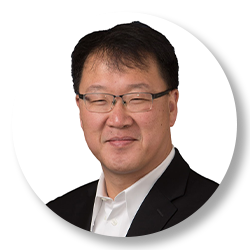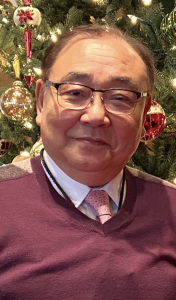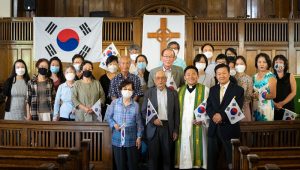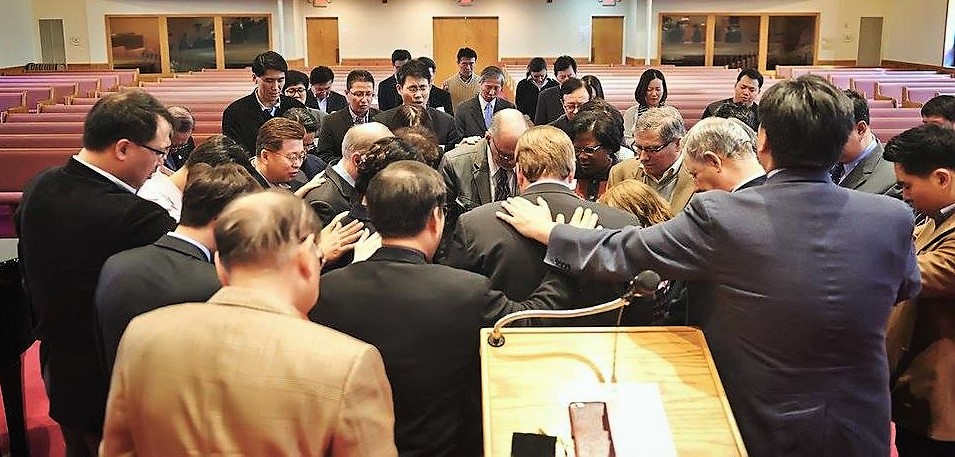The Greater New Jersey Conference Korean Caucus, with about 150 members, comprises pastors and church leaders of Korean-heritage, including those serving in cross-racial/cross-cultural congregations. The caucus conducts meetings and events, sponsors several committees and works with other representative Korean ministry groups in GNJ, across the denomination and in the Northeastern Jurisdiction (NEJ).

Rev. Sang Won Doh
GNJ members are excited that the NEJ Korean American Mission (NEJKAM), after being inactive for some time, was revitalized last fall, according to the Rev. Sang Won Doh, Dean of the GNJ Cabinet. Its efforts fueled the development of Korean United Methodists in the jurisdiction.

Rev Timothy Ahn
Retired Bishop Jeremiah Park serves the mission now as resident bishop. And the Rev. Timothy Ahn is its new part-time Mission Superintendent. He serves Arcola Korean UMC in Paramus, NJ, but is set to retire in June after 25 years there.
In 2008, Ahn established and nurtured an English-speaking ministry for young Korean Americans, which became a self-sustaining congregation. He has held several leadership positions within the UMC, including President of the Korean National Caucus in 2012-2013.
The Northeastern Jurisdiction (NEJ) has the strongest presence among Korean-American United Methodists in the U.S., with 74 congregations and 292 clergy. The Northeast is one of the major regions where large numbers of Korean immigrants have settled, and the metropolitan New York/New Jersey area has one of the largest concentrations of Korean Americans.
Several Korean congregations are among the largest churches in the Greater New Jersey and New York conferences in terms of worship attendance and budget. The largest church in both conferences is Korean.
The NEJKAM was active for decades planting new Korean mission churches until Korean immigration slowed for about decades. “As some NEJ Korean churches are disaffiliating from the UMC, said Doh, there is a growing need to restructure the remaining Korean UM churches to advance their mission in a changing environment, while preserving their cultural DNA and faith traditions.”

The NEJKAM’s newly redefined vision and mission gives him hope, especially its endorsement by the NEJ College of Bishops and Northeast Jurisdictional Conference delegates last November. The bishops wrote a letter to Korean United Methodists across the jurisdiction in December.
“We believe that the NEJKAM, with its recommenced role and task, will help bring vitality, stability, and a promising future to our Korean community,” the letter stated. “We also believe that NEJKAM is an effective vehicle to build a stronger partnership among the Korean community and various bodies of our church, including the College of Bishops.”

